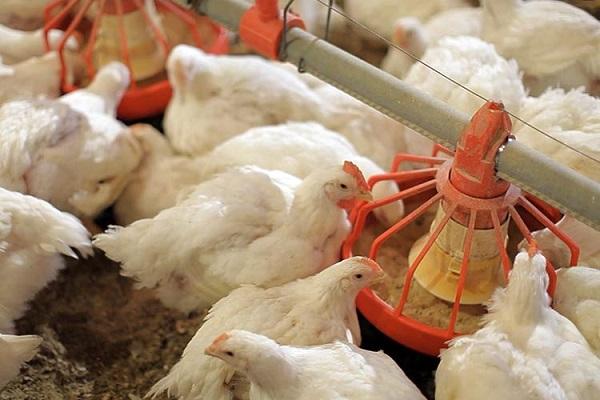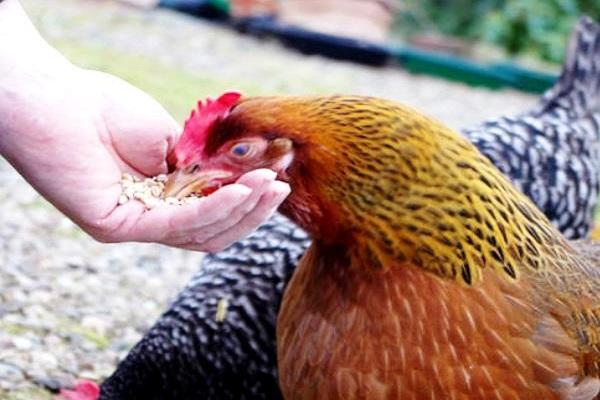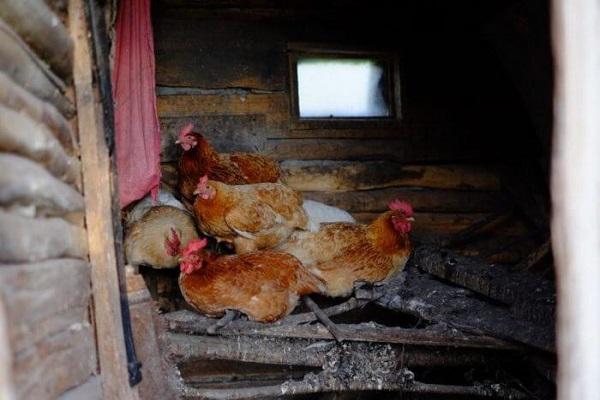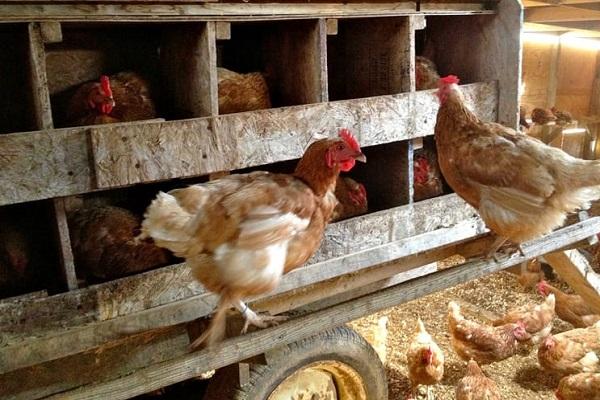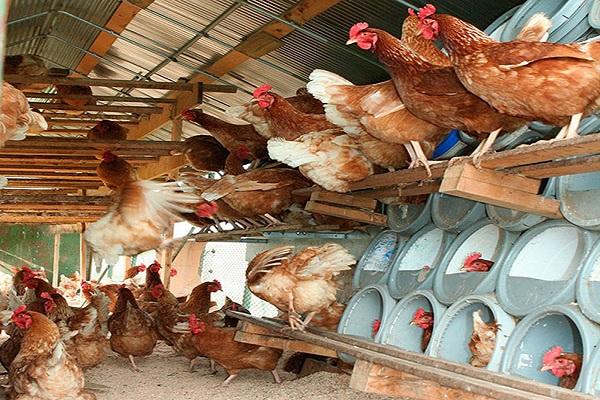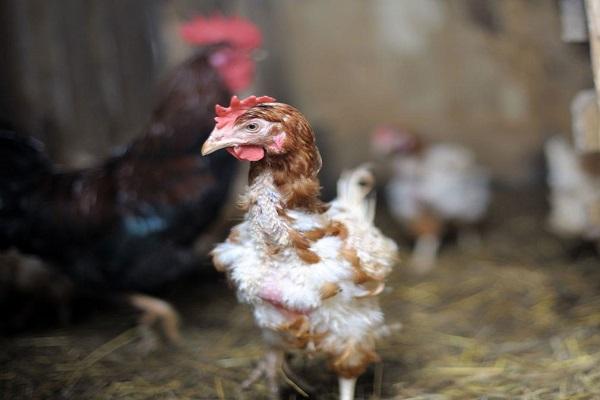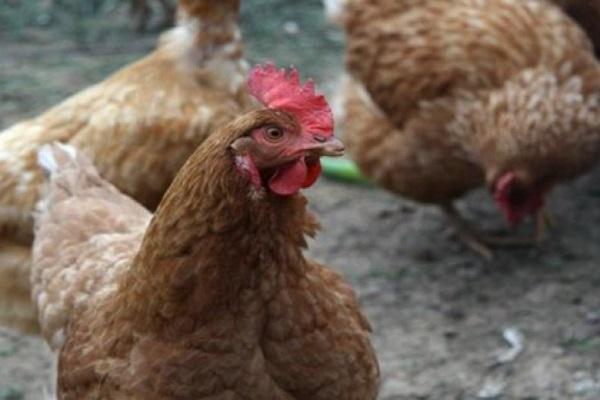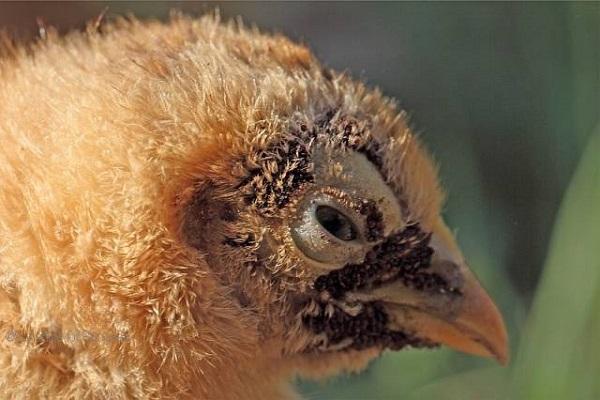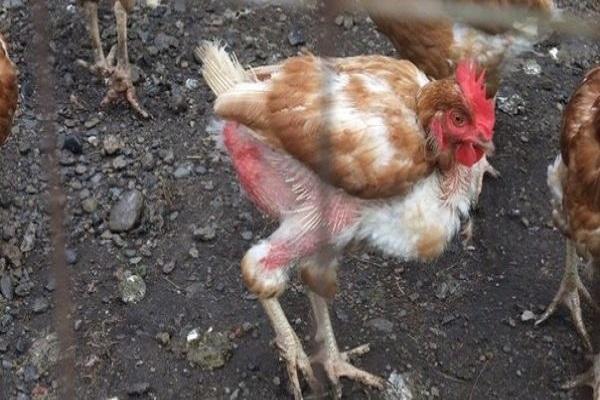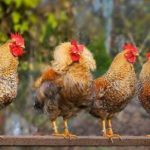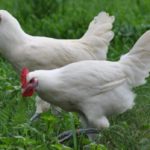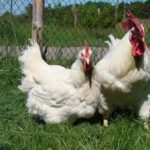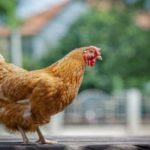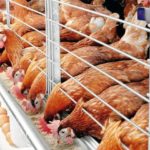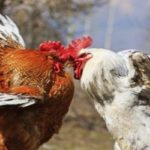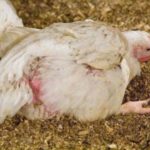The reasons why chickens peck each other's feathers vary. Setting up a comfortable, clean house to live in, sufficient lighting and a comfortable temperature will help avoid this unpleasant phenomenon. Such actions may be a consequence of parasite infestation. Seasonal molting makes the chicken want to pinch her neighbor. It is important to promptly determine what causes this behavior in birds and eliminate the negative impacts.
Why do chickens peck each other's feathers?
This behavior in poultry is called pterophagy. The desire to pluck feathers from other chickens may arise when the following conditions arise:
- Shedding.
- Improper conditions of detention.
- Unbalanced diet.
- Stress.
- The appearance of new individuals in the flock.
- Some other influences.
These points deserve a more detailed description..
Diagnosis and elimination of causes
Let us dwell on the main causes of the phenomenon.
Nutrition
Incorrectly selected chicken feeding ration, a lack of essential nutritional components of poultry feed may be the cause of feather pulling. If the diet lacks protein, it can be replenished from the feathers that contain it. Using only grain feed causes a lack of amino acids containing sulfur, and vitamin deficiency appears.
The content of mycotoxins in feed causes diarrhea and inflammation of the anus. When chickens eat feathers, they compensate for the lack of trace elements in their food.
Excess protein is also undesirable. It leads to an imbalance in the acid-base balance. In this case, an incorrect exchange of phosphorus and potassium occurs, vitamin A is destroyed.
Chicken nutrition problems are solved as follows:
- the protein content is increased by adding meat and bone and fish meal, cottage cheese, and worms;
- add 0.1 grams of sulfur for each bird when molting;
- add 15 grams of methionine per 10 kilograms of feed;
- laying hens are given 0.5 grams of table salt;
- Among minerals, egg shells, shell rock, and pebbles are added to the feed.
Only by ensuring rational feeding can you get rid of pterophagy.
Lighting
The number of eggs laid depends on the length of daylight hours. But daylight hours cannot be increased indefinitely. This disorients the chickens, causing them to become tired, irritated and, as a result, stressed and aggressive.Too bright light in the chicken coop is also not allowed.
For comfortable maintenance the following conditions are needed:
- the optimal duration of the light period is 14 hours;
- arrange nests in secluded corners;
- with artificial lighting, the lamp power should not exceed 40 watts per 4 square meters of area.
Such conditions will be close to natural and will create comfort for poultry.
Crowded content
When there are a large number of individuals in a limited space, fights always occur between them. This happens especially often when there are not enough feeders. Fighting in close quarters for food, chickens will peck at each other, pulling out feathers.
Remember that crowded housing causes stress, illness, weight loss and decreased egg production.
Even if the chickens are in the chicken coop only at night or in bad weather, for comfort it is necessary to place no more than 5 adults per 1 square meter. Chickens under the age of one month can be kept together in groups of 20, up to 3 months - 15, from 3 to 6 months - 9 chickens. These birds do not like large flocks; a group of 20 units is the most optimal.
When installing a drinking bowl, its length is made at the rate of 2 centimeters per head, and for a feeder - 10. In winter, it is necessary to walk chickens in a pen or fenced yard.
Microclimate in the chicken coop
The state of indoor air, temperature and humidity affect the mood of chickens and their behavior. A dry atmosphere with dust particles dries out the pen and makes it brittle. The body secretes a secretion for hydration. The smell of the secretion attracts the attention of the neighbors, causing them to attack cannibalism.
An uncleaned room where poultry is kept, lack of clean bedding, dirt and the smell of ammonia irritate chickens and cause them to become aggressive.They begin to tear out feathers and peck at each other, which makes the situation worse.
To create a favorable atmosphere in the chicken coop, you need to ensure its ventilation, which cleans the air and prevents dampness. It is necessary to constantly change the litter, keep it clean, and prevent it from getting wet. Dry hot air is humidified by spraying water from a hose in a fine stream into the room.
Shedding
Molting is a natural process of changing plumage. It occurs in the fall and lasts 4-5 months. At this time, chickens do not lay eggs, they have an imbalance in their body, and there is a nutritional deficiency. The chicken's behavior changes, aggression and a desire to tear out feathers from its relatives appear.
To prevent this from happening, the birds are provided with adequate nutrition, protein and vitamins are added to the feed, and walks and free accommodation are provided. It is useful to use drugs such as Methionine (3 grams per 1 kilogram of food), fish oil (100 grams per kilogram of food). The preparations Vitvod and Chiktonik strengthen the nervous and immune systems and include vitamins A, D3, E. They are used in injections or added to food.
Arrival of new individuals to the herd
When introducing new chickens into an already established community, socialization of newcomers is required. This is not an easy process, since the old-timers are not always hospitable. They attack the new arrivals. Most often, one, the most cocky individual, starts, setting an example for others.
In this case, carefully monitor the flock. The most aggressive chicken is placed in a cage, allowing new members to get used to it.
It is important not to exceed the size of the community by more than 20-30 individuals, to provide them with food and useful space.
Stress
Stress can be caused by the following reasons:
- Increased temperature in the chicken coop.
- Change of feeding diet.
- Transfer to another herd or premises.
- The presence of strangers.
These factors cause aggression; chickens begin to pluck each other’s feathers. It is important not to disturb the birds’ habitual way of life and to follow the rules for raising them.
Ectoparasites
Common parasites for chickens are:
- mites;
- lice;
- pereaters.
They suck blood and irritate the skin. Chickens become restless, aggressive, scratch themselves, tear out the feathers of neighboring individuals, and peck them until they bleed. To avoid infection by parasites, perform the following actions:
- promptly clean the chicken coop from dirt, droppings, and contaminated litter;
- periodically spray walls and floors with disinfectants;
- Chickens are regularly inspected and, if pests appear, a course of treatment is carried out.
A sick bird is quarantined.
What to do with an injured chicken
Birds affected by pterophagy are placed in a separate room. Minor damage is treated with a solution of hydrogen peroxide or furatsilin. Large wounds are lubricated with brilliant green, ointments: Sintomycin, Tetracycline, Levomekol.
Improve nutrition by increasing the dose of protein and vitamins. The individual is returned after complete recovery. At the same time, they monitor the behavior of chickens in the flock so that attacks do not happen again.
Prevention measures
You can avoid such a phenomenon as pterophagy by organizing the conditions for keeping chickens, observing sanitary standards, proper diet, and timely removal of sick and aggressive individuals..

